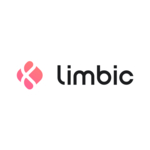AI cut wait times by five days, reduced dropout rates to less than a quarter, reduced treatment allocation to incorrect diagnosis by almost half, and doubled recovery rates
NEW YORK & LONDON–(BUSINESS WIRE)–In a first-of-its-kind peer-reviewed study published by JMIR Publications, a team of U.K. researchers led by Max Rollwage Ph.D. has demonstrated significant clinical efficiencies and patient recovery rates by using Artificial Intelligence (AI) for the treatment of mental health. The study focused on data from nine NHS Talking Therapies services across England, involving 64,862 patients, and sought to determine whether AI-driven solutions could empower mental health practitioners to use their time more effectively while enhancing patient care.
The AI at the center of this research, known as Limbic Access, was integrated into the referral and assessment process. Limbic Access is an AI-powered mental health self-referral and e-triage service. The results of the study prove that AI can improve patient outcomes by:
- Reducing wait times by an average of five days.
- Lowering dropout rates to 21.9% for those using AI from 26.7% for those who didn’t.
- Reducing the changes in treatment allocation from 10.5% to 5.7% by using AI.
- Most crucially, patients using AI experienced a doubling in recovery rates.
With up to 25% of the U.K. population experiencing depression or anxiety disorders, many mental health services have struggled to provide adequate treatment with limited resources, resulting in impaired patient experience and, ultimately, worse treatment outcomes. One particular challenge that mental health services face is the long wait time between the point from when a patient seeks support and when they begin treatment. For instance, in the English National Health Service (NHS), between 2021 and 2022, 31% of referrals to Talking Therapy services dropped off the waitlist before starting treatment, and 9% of patients waited more than six weeks for their clinical assessment.
In addition, a further 47% of patients experienced hidden waits of more than 28 days between clinical assessment and their first treatment session, contrary to the guidance from the National Institute of Health and Care Excellence, which highlights the importance of timely access to treatment. Notably, against the backdrop of rising referrals, the needs of patients are unlikely to be addressed through an increase in the clinical workforce due to a worldwide shortage of qualified staff. Previous studies have explored using digital solutions in healthcare settings, such as AI-based interventions and conversational agents. However, these studies have mainly focused on treatment support or remote monitoring. Moreover, there is little evidence of the efficacy of such tools in real-world clinical settings.
“Mental health treatment has never been in such demand. With this research, AI has now been shown to offer much-needed help to organizations, like ours, that are innovating to meet this demand,” said Mona Stylianou, Principal Clinical Lead for Everyturn Mental Health, a non-profit provider of mental health services for the NHS.
The study’s findings indicate that providing clinically relevant information ahead of clinical assessments was pivotal in achieving these remarkable outcomes. This research emphasizes AI’s role in bolstering the mental health workforce and elevating the quality of mental healthcare for patients. The ability to streamline processes, reduce strain on clinicians, and boost patient outcomes provides relief to a stretched mental health industry.
Commenting on the significance of these results, lead researcher Max Rollwage said, “Our study underscores the practical utility of AI in the mental health field. By harnessing AI technology, we can simultaneously increase efficiencies and enhance the well-being of those seeking mental healthcare. This is a breakthrough moment for mental health.”
For more information on this groundbreaking study, please visit here.
About JMIR Publications:
JMIR Publications helps scientists to disseminate innovations, ideas, protocols, and research results to the widest possible audience. This includes not only other researchers, but also patients/consumers and other knowledge users.
As one of the first open access publishers in the world, we have over 20 years of experience in scholarly communication. We use the internet and latest available technologies, organize conferences, create social media content, and develop other innovative knowledge translation products.
About Limbic:
Limbic is making the highest quality mental healthcare available to everyone, everywhere, regardless of socioeconomic factors. Limbic is the world’s first AI mental health chatbot to have achieved Class IIa UK medical device status and has helped over 220,000 NHS patients enter care, releasing over an estimated 40,000 clinical hours for NHS services and saving nearly 5 to 10 times the economic cost per additional user recovery.
Contacts
Read the orginal article: https://siliconcanals.com/news/business-wire/using-conversational-ai-to-facilitate-mental-health-assessment-and-improve-clinical-efficiencies-in-psychotherapy-services-a-real-world-observational-study-of-limbic-ai/




